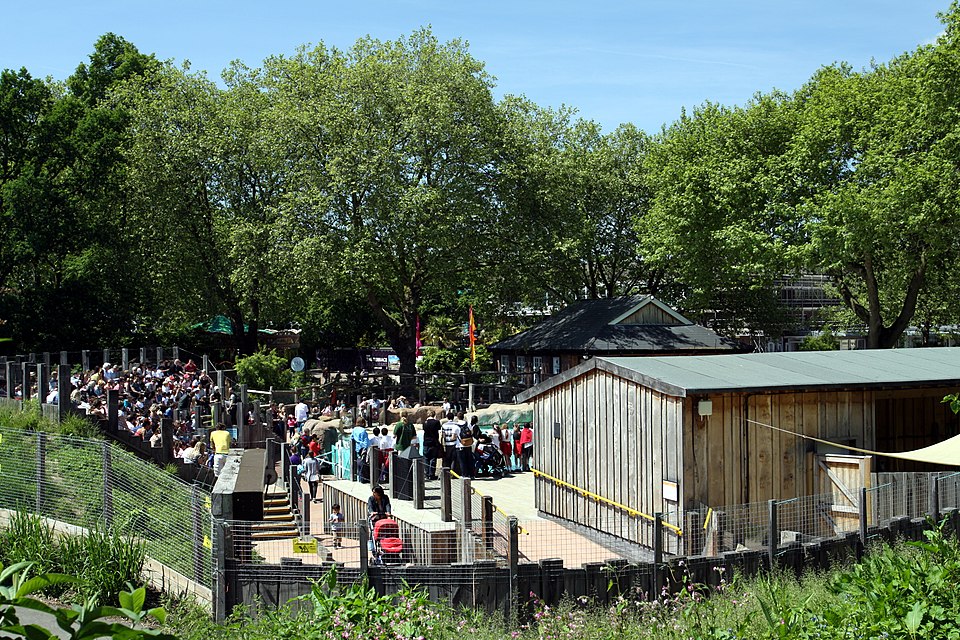
Zoos and aquariums across Great Britain are set to implement sweeping changes under new animal welfare standards aimed at improving the lives of animals and reinforcing the UK’s
leadership in ethical zoo practices.
Unveiled on Saturday, 24 May, the Standards of Modern Zoo Practice for Great Britain mark the first major update in over a decade. These new rules are designed to reflect the latest advancements in animal welfare, safety, and conservation.
Key reforms include:
Expanded Elephant Habitats: Zoos must provide larger, more natural enclosures to mimic the vast territories elephants roam in the wild.
End of Tethering Birds of Prey: The outdated practice of using tethers for long-term accommodation will be phased out, replaced with spacious aviaries.
No More Animal Touch Pools: Public interaction with sensitive marine life like rays and octopuses will be banned due to the stress it causes these highly intelligent creatures.
Additional measures:
Enhanced Conservation Standards: Zoos will be required to keep detailed conservation records and increase efforts in breeding endangered species, conducting behavioural research, and educating the public. The new rules also discourage sourcing animals from the wild.
Stronger Public Safety Protocols: Facilities housing dangerous animals must implement stricter safety systems, including double-gated entries, lone worker safeguards, and access to firearms if needed.
Business Continuity Planning: Zoos must now have robust financial plans to ensure the welfare of animals is maintained during economic hardship.
Animal Welfare Minister, Baroness Hayman said:
“We are a nation of animal lovers, and our best zoos and aquariums are truly world leaders in setting the standard for how wild animals should be kept.
Today’s long-overdue reforms lay the foundation for an even stronger, even more compassionate future for all zoos and aquariums —and the animals they protect. This is the first step as part of our commitment to deliver the most ambitious animal welfare reforms in a generation.
We’re making sure all sectors have the tools they need thrive, which is vital in our mission to deliver economic growth and make lives better for people across the country under our Plan for Change”.
Cam Whitnall, Managing Director of The Big Cat Sanctuary and star of CBBC’s One Zoo Three, said:
“For too long, zoos have been misunderstood as places of entertainment, but these new standards make it unmistakably clear: modern, good zoos put wildlife first. They are hubs for conservation, education, and world-leading animal care. I’m proud to be part of the UK’s zoo, sanctuary and aquarium community, setting the global benchmark for the welfare of endangered species.
This is a huge step forward and also a call to action for other countries to now raise their standards, so animals everywhere benefit from the same level of care, and we can align globally for wildlife”.
Dr Jo Judge, CEO of the British and Irish Association of Zoos and Aquariums (BIAZA) which represents over 130 zoos and aquariums said:
“The new standards are a significant step up in legal requirements and cement Britain’s position as a global leader for zoos and aquariums. BIAZA members already lead the way in animal care and conservation and we have been working closely with Defra officials to realise these updated standards.
We are delighted to see them published today, demonstrating government’s and the sector’s commitment to the highest levels of animal care, and helping empower zoos and aquariums to keep leading the fight for nature”.
Jamie Christon, CEO at Chester Zoo, said:
“We were delighted to welcome the Zoos Minister, Baroness Hayman, to Chester Zoo for the official launch of the updated Secretary of State’s standards of modern zoo practice. These new standards set a clear vision for the future of zoos in the UK and we’re pleased to have worked closely with Defra to help shape them and ensure that they represent world class animal care”.
Kathryn England, Chief Operating Officer for ZSL, the international conservation charity behind London and Whipsnade Zoos said:
“These standards will help bring the whole sector up to a level the public rightly expects – and that animals everywhere deserve”.
London and Whipsnade Zoos are conservation powerhouses, delivering world-leading animal care and driving global efforts to protect wildlife. We welcome these new Standards of Modern Zoo Practice and the clarity they bring - every animal in every UK zoo deserves the same high standard of care, and every zoo should be contributing meaningfully to conservation.
The reforms come with a two-year implementation period, allowing zoos and aquariums time to transition, with extended timelines for specific animal-related changes. Support and guidance will be provided throughout to help institutions adapt successfully.
These updates form part of the government’s broader Plan for Change and aim to uphold the highest standards of care and responsibility in zoo management. The full standards are now available on gov.uk. Photo by Chmee2, Wikimedia commons.









































